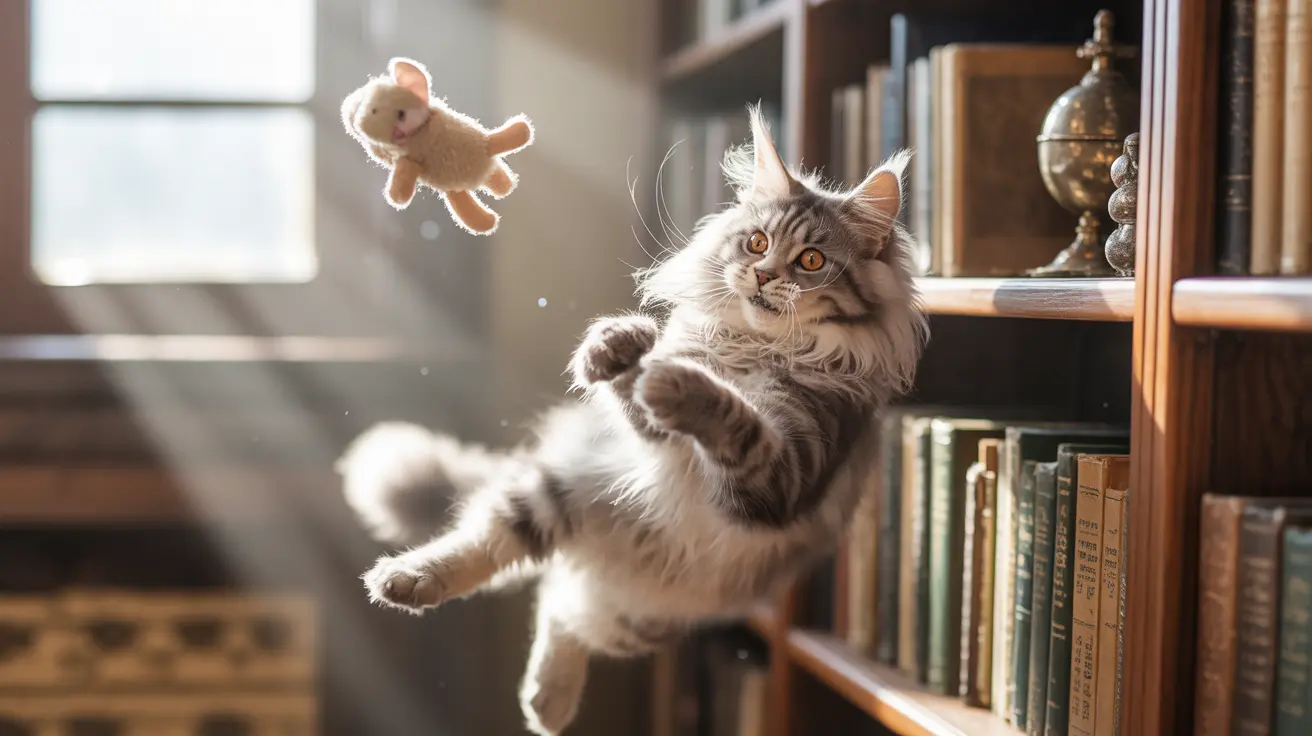Understanding Feline Emotional Intelligence
Research has shown that cats possess remarkable emotional awareness, particularly when it comes to reading human emotions. They can distinguish between different facial expressions and vocal tones, demonstrating an impressive ability to recognize their owners' emotional states.
Studies indicate that cats respond differently to positive and negative emotional cues from humans. They're more likely to display affectionate behaviors when their owners are smiling and tend to become more reserved when sensing negative emotions.
The Science Behind Cat "Humor"
While cats don't laugh in the way humans do, they express playfulness and contentment through various physical signals. These include purring, tail flicking, dilated pupils, and what some experts call the "play bow" – a position similar to what dogs do when initiating play.
What we interpret as humor is typically a combination of natural instincts, learned behaviors, and social interaction. When cats perform actions that make us laugh, they're usually engaging in instinctive hunting practice, seeking attention, or responding to positive reinforcement.
Playful Behaviors vs. Comedic Intent
Many behaviors that humans find funny – like sudden bursts of energy (zoomies), hiding and pouncing, or batting objects off surfaces – are actually expressions of natural feline instincts. These actions serve important purposes in cats' physical and mental development.
Cats may repeat "funny" behaviors because they've learned these actions result in attention or rewards from their owners. This demonstrates their intelligence and ability to learn cause-and-effect relationships rather than an intentional attempt at humor.
How Cats Respond to Human Laughter
When humans laugh, cats often show curiosity about the unusual sound and changed emotional state. Some cats may approach their laughing owners, while others might appear puzzled or even startled by sudden outbursts.
This response likely stems from their ability to recognize emotional changes in their environment rather than an understanding of humor itself. Cats are particularly attuned to changes in their owners' vocal patterns and body language.
Creating Positive Interactions With Your Cat
While cats may not intentionally try to be funny, you can encourage playful behavior that strengthens your bond. Provide enriching toys, engage in regular play sessions, and respond positively to their natural behaviors without forcing interactions that might cause stress.
Remember that each cat has a unique personality, and what seems playful to one might be overwhelming to another. Always respect your cat's individual comfort levels and behavioral cues.
Frequently Asked Questions
Do cats truly have a sense of humor or do they just act playfully?
Cats don't have a sense of humor in the way humans do. What we perceive as funny behavior is actually natural instincts, playfulness, and learned responses to positive reinforcement.
How do cats respond to human laughter and emotional expressions?
Cats can recognize and respond to human emotional expressions, including laughter. They may show curiosity, approach their owner, or sometimes appear confused by sudden emotional changes.
Can cats recognize and react to their owner's moods like happiness or anger?
Yes, research shows cats can distinguish between different human emotions and often modify their behavior accordingly, showing more positive behaviors around happy owners.
Why do cats perform mischievous behaviors that seem funny to humans?
These behaviors are typically expressions of natural hunting instincts, play behavior, or learned actions that have previously resulted in attention or rewards from their owners.
How can I encourage healthy, playful behavior in my cat without overstimulating them?
Provide appropriate toys, engage in regular play sessions, and watch for signs of overstimulation. Respect your cat's boundaries and allow them to set the pace of play interactions.
Understanding that cats don't intentionally try to be funny doesn't make their antics any less entertaining. Their natural behaviors, combined with their unique personalities and close bonds with humans, create those special moments that bring joy and laughter to our lives. While they may not have a sense of humor as we know it, cats certainly know how to keep us entertained and amazed with their charming ways.






